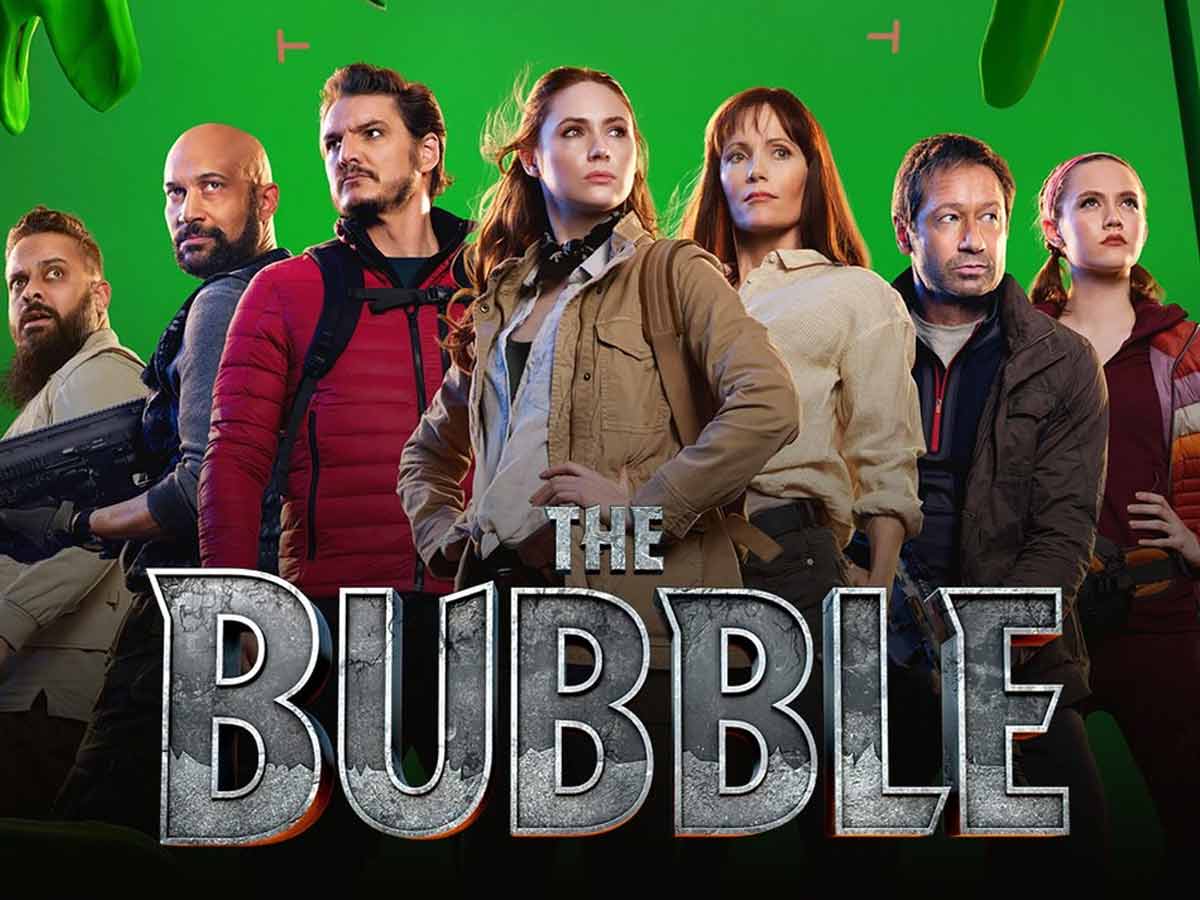There’s a scene near the end of The Bubble, a new Netflix showbiz comedy starring Keegan-Michael Key, in which his movie star character confides in his co-star, played by Karen Gillan. He tells her that he used to think he was better than ordinary people, but it took a pandemic (roll your eyes) for him to realise he wasn’t.
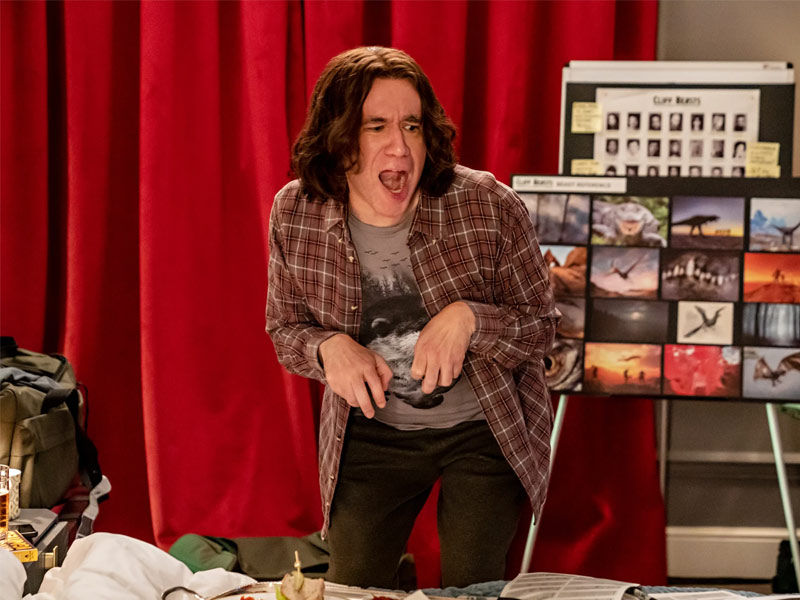
If only the people behind The Bubble had been as self-aware because there are few examples of Hollywood entitlement as egregious as this. And I say this just a week after one of the world’s biggest movie stars received a standing ovation at the industry’s biggest film event, just minutes after slapping one of the world’s most famous comedians on stage.
The Bubble, directed and co-written by Judd Apatow, follows a group of actors assembled on a closed set in England to film the sixth instalment of Cliff Beasts, a film franchise about dinosaur-hunting adventurers. The studio confines the cast members to the hotel and the set, and they quickly go stir-crazy as they deal with egos, isolation, and production issues within the confines of their quarantine bubble.
They claim that celebrities are out of touch with reality or that their realities have been warped to such an alarming degree that they require actual teams to help them appear more relatable. This theory was put to the test at the Oscars. And now, in The Bubble, we can see it again (but only if we want to).
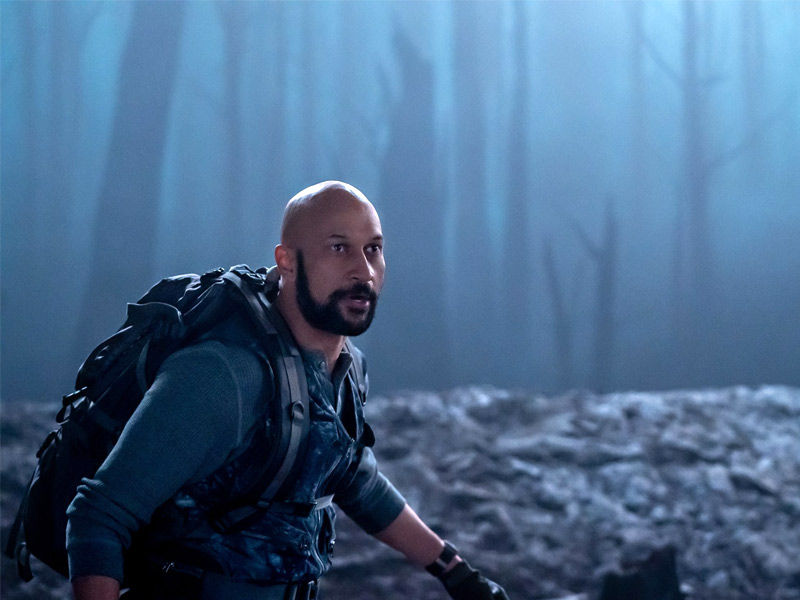
The Bubble attempts to satirise show business and poke fun at celebrity culture, but with little insight or wit, starring a rather random group of performers—aside from Key and Gillan, we have David Duchovny, Leslie Mann, Iris Apatow, and Pedro Pascal—as fictional actors who convene somewhere in England’ to make the sixth instalment of a goofy action franchise in the middle of the pandemic.
The fact that Judd Apatow directs it, unquestionably one of the most brilliant comedic minds of the new millennium, is so disheartening for me—I grew up watching his films and truly regard some of them as classics as Superbad (which he produced) and Funny People.
His only bad film is The Bubble.
To emphasise the point I was making earlier, it takes a certain level of obliviousness on both the filmmakers and the studio to make a comedy film about their industry amid a pandemic while pretending that it is pointing fingers at this very thing.
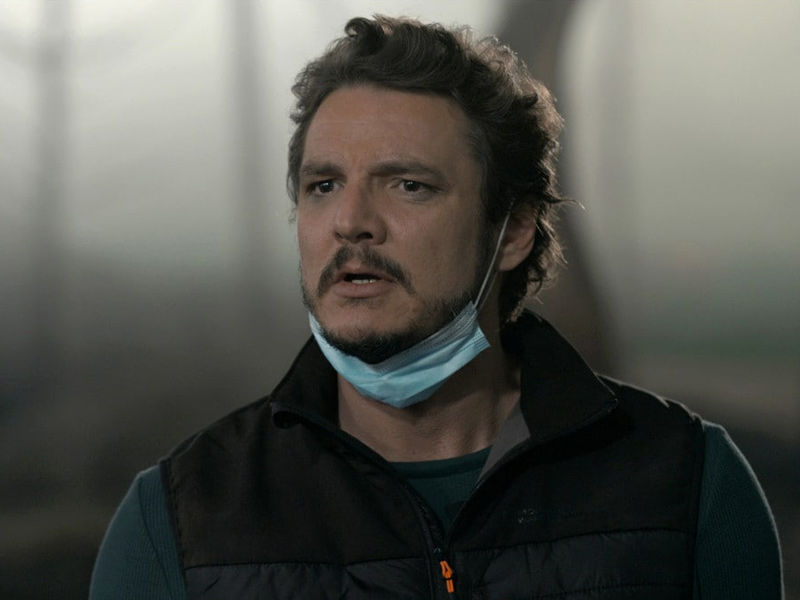
I’d like to give Apatow the benefit of the doubt and assume that ‘the bubble’ is a giant metaphor for how isolated celebrities are in their ivory towers, but the satire falls flat. Consider how wonderfully films like Tropic Thunder and the comparatively lesser-known Tristram Shandy: A Cock and Bull Story skewed the world of entertainment with their unique perspectives on prima donna actors and the chaotic nature of cinematography.
The extent to which The Bubble is willing to go in this regard is to include a strange scene in which the ensemble, feeling tethered to a franchise they don’t want to be a part of, gathers for some drugs. In the movie-within-a-movie, Cliff Beasts 6, Pascal’s character has an Italian accent similar to that of Jared Leto in House of Gucci. The main difference is that Cliff Beasts is a spoof, whereas House of Gucci was a genuine Oscar contender.
Also Read, The Last Bus 2021: An Underrated Movie of 2021 you Must Watch
Pascal is most likely the only one having any fun here, which is ironic. The rest of the cast, including the ostensible lead, is merely going through the motions. Even Apatow’s wife and daughter seemed to be coerced into signing on. Vir Das plays the manager of the hotel where the Cliff Beasts cast and crew are quarantined. Ronjon is his name. I almost expected an explanation for why this brown man had chosen such a name for himself, but none came. I’m sure Das said something about it, but I’m not sure why no one noticed.
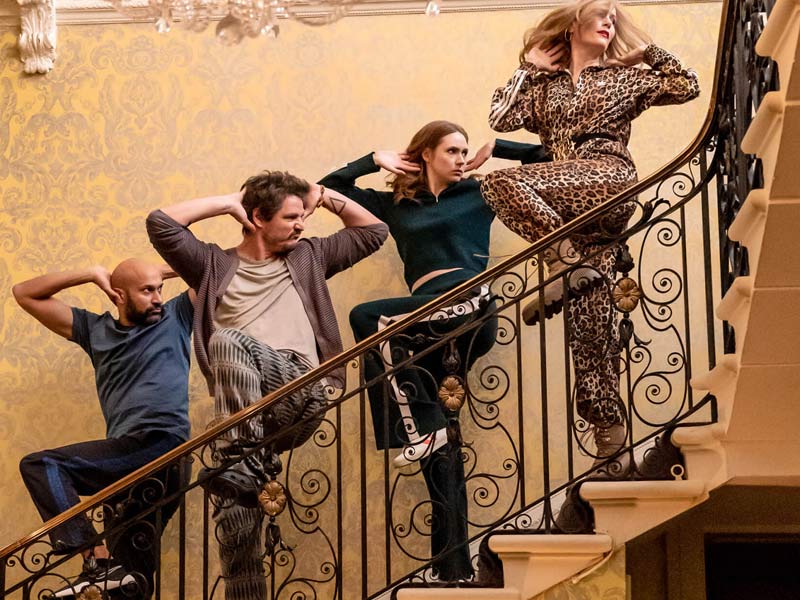
Similarly, Guz Khan plays a Pakistani-British actor in Cliff Beasts 6 who is supposed to be comic relief but is given a name that sounds Greek. How many Pakistanis do you know who goes by the name Howie Frangopoulos? There are also a few celebrity cameos, but they are all uniformly forgettable. The majority of them should have been removed.
The Bubble plays like an assembly cut for a reason. Apatow was known for shooting endless reels of film back in the day. Working on the much cheaper digital format now should have been liberating for a champion of improvisational comedy like himself. Perhaps it’s only because he shot so much footage that he decided to keep the majority of it in the film.
However, this approach has an effect on the pacing and results in a disjointed viewing experience in which scenes do not flow gracefully from one to the next but instead end abruptly when the gag is over.
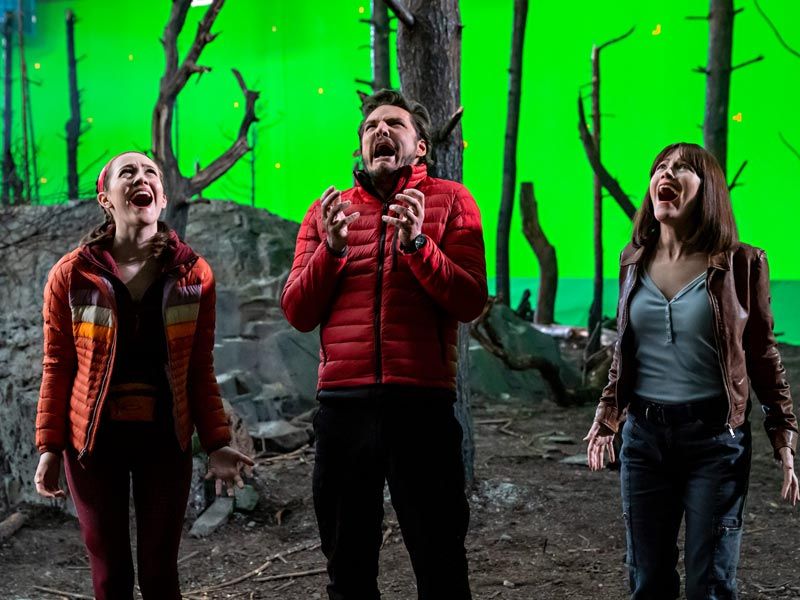
Even if we can’t forget the pandemic, we can easily forget this film, which achieves the rare feat of becoming dated as you watch it.





















